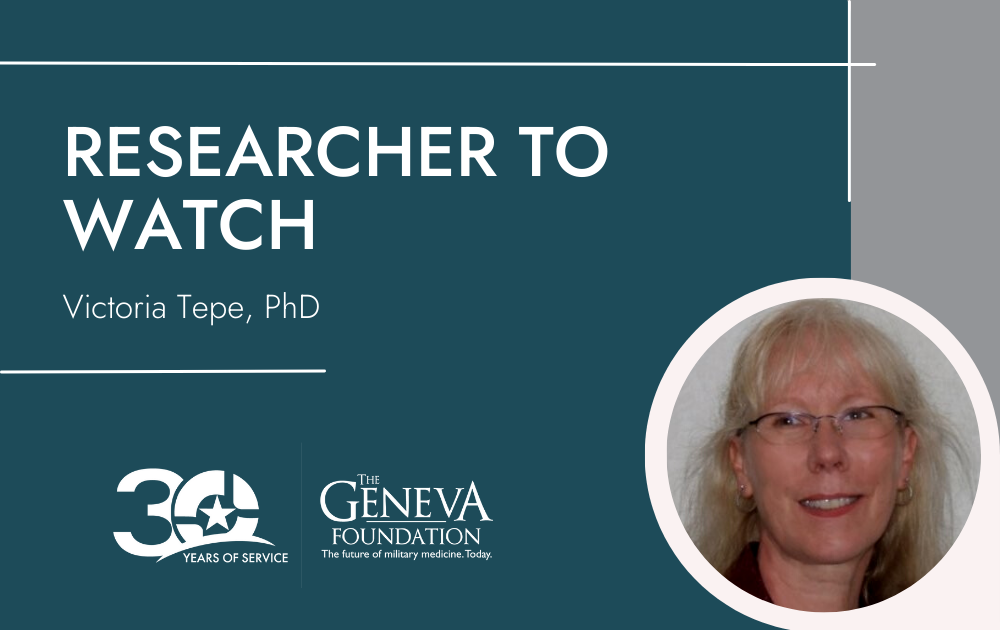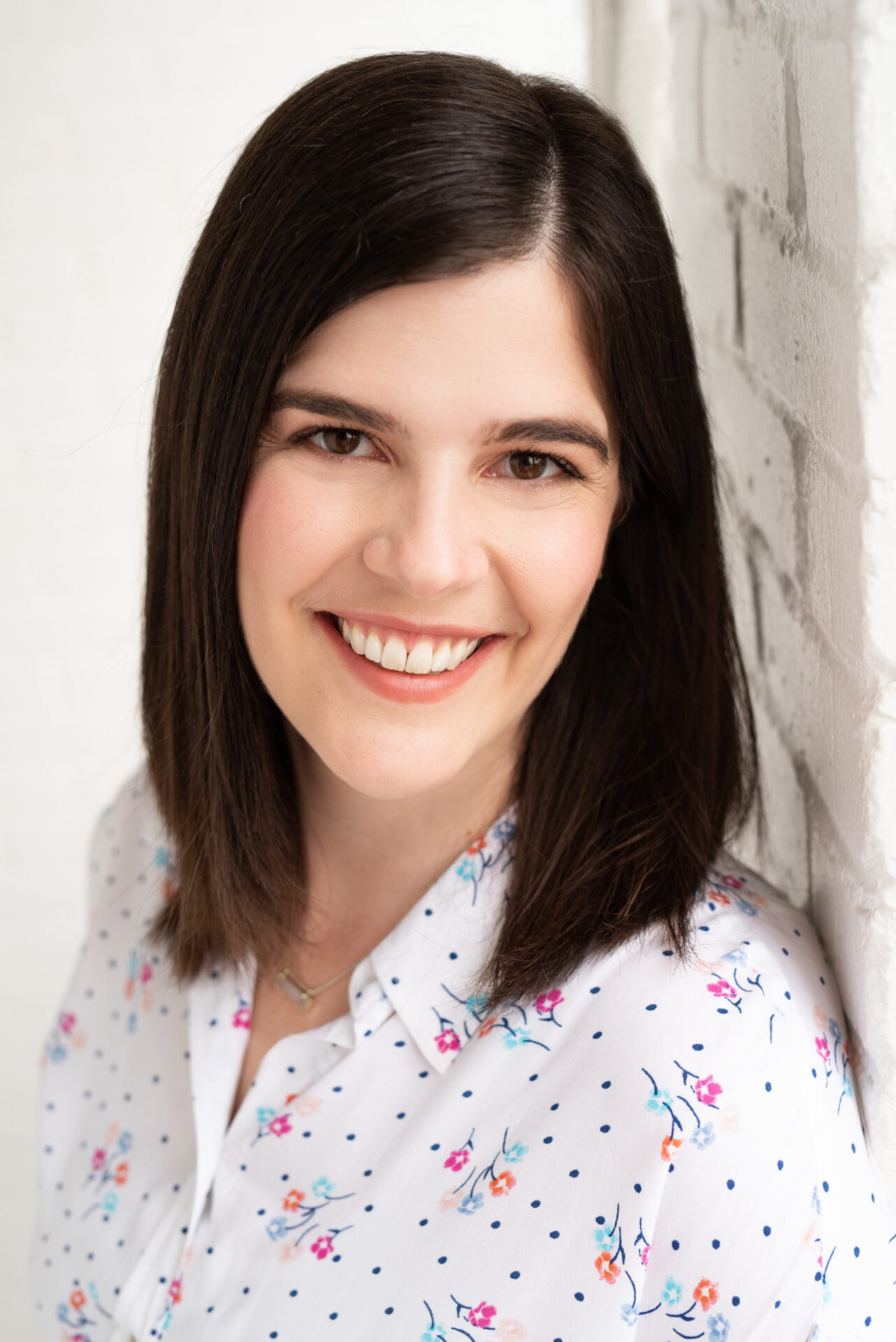15 March 2023
Improving Central Auditory Processing Disorder for Service Members and Veterans
Researcher to Watch: Victoria Tepe, PhD
On the battlefield, a military service member’s sense of hearing is of vital importance. In a fast-paced operational setting survival might depend on the ability to understand information delivered by radio or to identify the location of footsteps heard at a distance. However, service members who have a history of traumatic brain injury or exposure to blast, hazardous noise, or jet fuel may have difficulty comprehending rapid speech or speech in noisy environments, distinguishing between similar sounds, and trouble localizing sound sources.
Victoria Tepe, PhD is a senior science advisor for Geneva and a neuroscientist who supports the Department of Defense Hearing Center of Excellence (HCE). She has been a Geneva employee for 10 years and has 30 years of experience performing biomedical and biobehavioral research in academic, medical, and military settings. Recently, she co-authored a review article titled Acquired Central Auditory Processing Disorder in Service Members and Veterans. The article is an overview of findings from other studies to describe military risk factors associated with central auditory processing disorder (CAPD). It also summarizes clinical considerations for assessment, diagnosis, and management. Most importantly, it identifies specific knowledge gaps as research targets to improve evidence-based practice.
Her work and the article have received a few special accolades. The paper was originally accepted for publishing in the Journal of Speech, Language, and Hearing Research without revisions and was also selected as a feature article for a special collection by the American Speech Language Hearing Association (ASHA). In 2021, it was recognized by the ASHA Journal’s Academy as a Top 10 article of 2020. To date, the original article has received more than 12,000 downloads.
We recently spoke with Dr. Tepe about the HCE, her research, and her experience working with Geneva.
What excites you about your work?
Collaboration. I’m trained as a scientist, so I think the three most important words in the English language are, “I don’t know.” Those words motivate questions to find answers to apply as action. My work allows me to collaborate with clinicians, who I think are also reminded daily of how much they don’t know. So, I think we share a sense of humility. When we’re able to collaborate – as we did for the article described above — all of us trying to learn from each other, we can better understand individual patients’ experiences in the context of big-picture problems, and vice versa. I love it when we can write about what we discover. For me, that’s the greatest fun in the world. It’s like putting together a jigsaw puzzle to solve a riddle.
What recent work can you share that you are most proud of?
Certainly, we’re extremely proud of the article described above. But it was motivated and made possible through the efforts of a joint VA-DoD community of interested researchers and clinicians who bring their skills and curiosity to bear on improving CAPD diagnosis, treatment, and outcomes for service members and Veterans. I’ve worked hard to organize and lead that group’s monthly meetings for six years. We’ve developed and produced a variety of work products and initiatives to advance the state of the science, raise awareness, and bring resources to clinicians. We’re working now to complete another article like the first, but with a more specific focus on treatment options and strategies.
Describe the team and the roles they have with Geneva and the study.
I am one of several Geneva employees who support the HCE. Two of us provide organizational and leadership support to the HCE’s interests in CAPD, as well as numerous other HCE projects, priorities, and collaborations.
There are lots of amazing people and teams working in agencies and labs and clinics all over the country, and around the world, on a long list of important problems in military medicine. The traits I see and appreciate most in my own colleagues are curiosity, patience, appreciation, empathy, intellectual honesty, and courage. As much we enjoy our work or sometimes struggle with it, we all understand it’s for someone else’s benefit.
What is it about Geneva that has encouraged your career supporting the mission of advancing military medicine through research, development, and education?
All told, I’ve worked as a contractor in the field of military medicine for four decades. Geneva stands out as far and away the most positive and consistently rewarding professional affiliation I’ve ever had. Geneva’s culture is thoroughly supportive, collaborative, flexible, and motivating. Again and again, I see that Geneva employees respect and celebrate each other’s unique skills, experiences, interests, insights, and accomplishments. This is the vibe that makes people want to grow and do their best work as individuals and in service to something bigger than themselves. I’ve been with Geneva for more than 10 years and would happily stay another 10.
This award is a task order subcontract from zCore Business Solutions, Inc., a Geneva prime partner. The sponsor is the Air Force Education and Training Command with a prime contract number of W81XWH15D0011. The title of the contract is HCE Research Directorate Services | Research Coordination and Prevention Support Services.
Disclaimer: The views expressed do not reflect the official policy of the Army, Air Force, the Department of Defense, or the U.S. Government.

"Again and again, I see that Geneva employees respect and celebrate each other’s unique skills, experiences, interests, insights, and accomplishments. This is the vibe that makes people want to grow and do their best work as individuals and in service to something bigger than themselves. I’ve been with Geneva for more than 10 years and would happily stay another 10."
Victoria Tepe, PhD, Senior Science Advisor
HIGHLIGHTS
- Recently, Dr. Tepe co-authored a review article titled Acquired Central Auditory Processing Disorder in Service Members and Veterans. The article is an overview of findings from other studies to describe military risk factors associated with central auditory processing disorder (CAPD).
- In 2021, it was recognized by the ASHA Journal’s Academy as a Top 10 article of 2020.
- To date, the original article has received more than 12,000 downloads.


